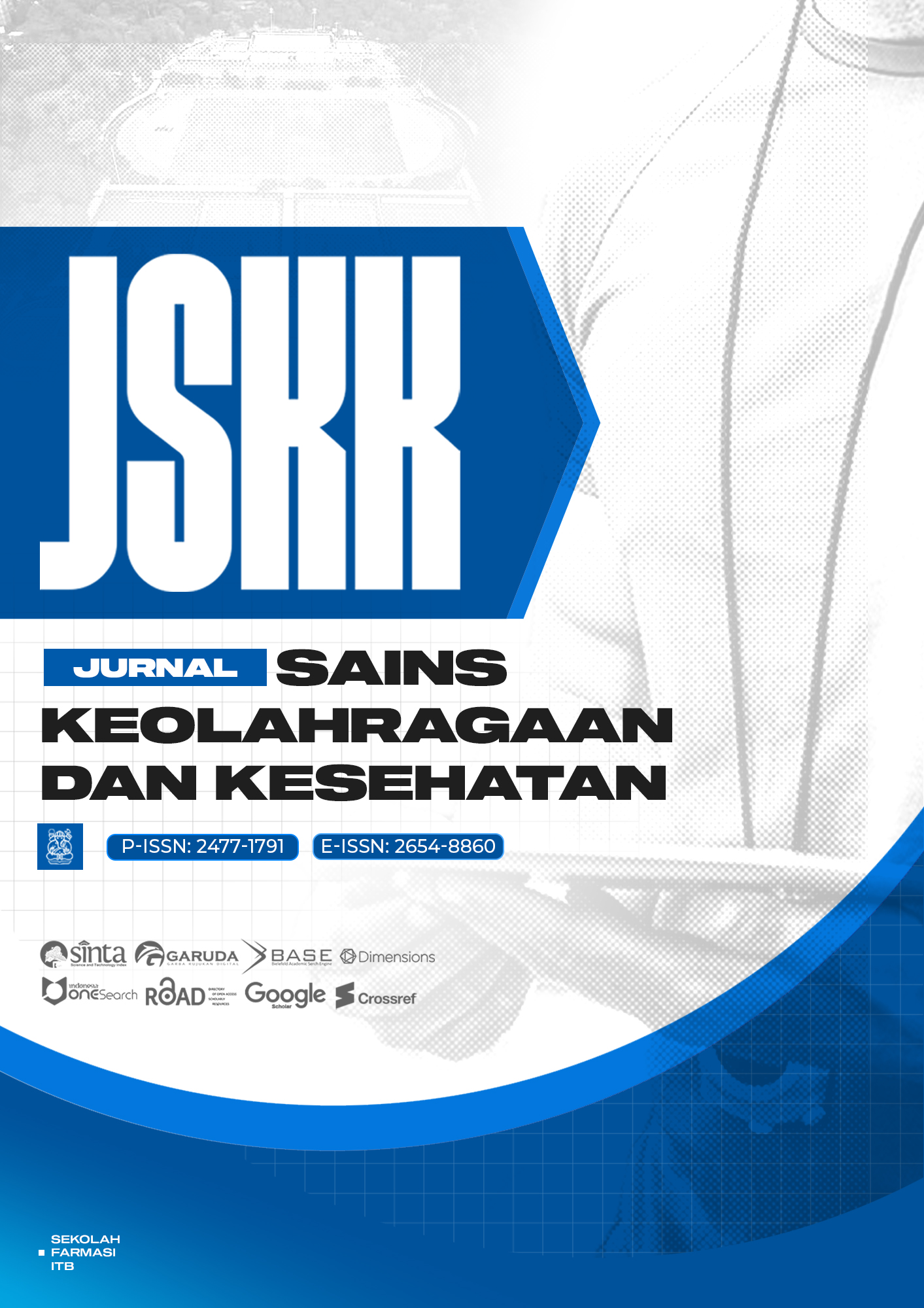Improving Mental Health in Adolescents in Special Child Care Institutions Through Recreational Sports Intervention
DOI:
https://doi.org/10.5614/jskk.2025.10.1.1Abstract
This study examines the effectiveness of recreational sports interventions in addressing mental health issues among adolescents serving sentences in Juvenile Correctional Facilities (LPKA). Adolescents in prison tend to experience significant emotional stress, which can potentially worsen their mental health conditions. Sports are considered a practical and effective intervention method as they can trigger the release of serotonin and endorphins, hormones that play a role in improving mood. The research sample consisted of 20 male juvenile inmates at LPKA Bandung, aged 15-19 years, who participated in an eight-week recreational sports program. Measurements were conducted using the DASS-42 questionnaire to evaluate levels of anxiety, stress, and depression. The analysis results showed that the sports intervention significantly reduced anxiety (p-value = 0.000) but did not have a significant effect on stress and depression (p-value > 0.05). These findings suggest that recreational sports can be an effective intervention for reducing anxiety among adolescents in correctional settings; however, additional approaches are needed to address stress and depression. This study makes an important contribution to the development of sports-based rehabilitation programs in correctional facilities.
Downloads
Published
How to Cite
Issue
Section
License
Copyright (c) 2025 Dinda Khoerunnisa, Nia Sri Ramania, Esther Margaritha Livida Sinsuw, Ahdan Abdillah Ad-Dauli, Bagus Winata

This work is licensed under a Creative Commons Attribution-ShareAlike 4.0 International License.
This is an open-access article distributed under the terms of the Creative Commons Attribution-ShareAlike 4.0 International License which permits unrestricted use, distribution, and reproduction in any medium. Copyrights of all materials published in JSKK: Jurnal Sains Keolahragaan dan Kesehatan are freely available without charge to users or / institution. Users are allowed to read, download, copy, distribute, search, or link to full-text articles in this journal without asking by giving appropriate credit, provide a link to the license, and indicate if changes were made. All of the remix, transform, or build upon the material must distribute the contributions under the same license as the original.











